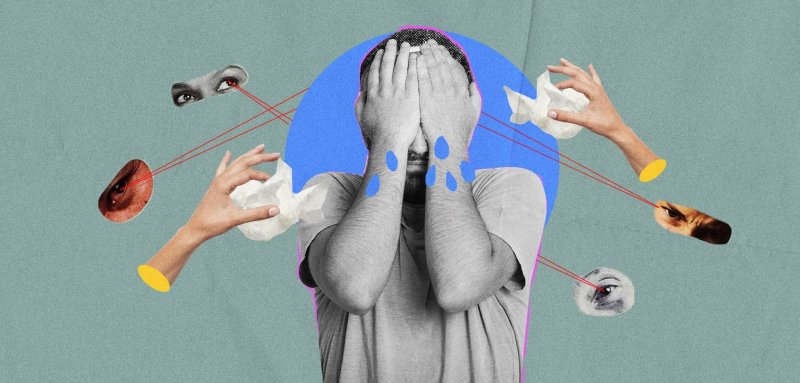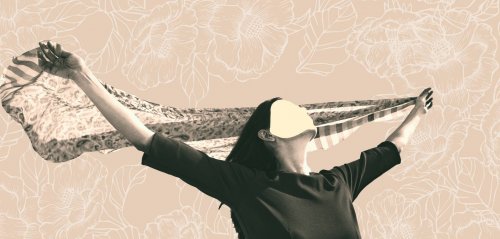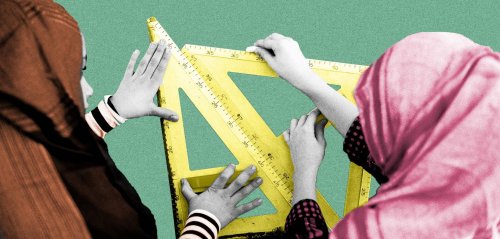Hijab in the Arabic language means barrier, and all that is covered. In an Islamic context, the hijab /veil is defined as a head covering that some Muslim women wear.
Today, I do not aim to discuss the piece of cloth that most think of when we speak of hijab. I am here to talk about a different kind of hijab that most Arab men tend to wear quite often, consciously and unconsciously—their emotional hijab.
Thinking of today’s Arab reality, especially in war zones like Syria, Libya, Yemen and all neighbouring countries that are struggling to make a living like that of the Lebanese reality, the region is filled with disappointments, despair, severe mental health issues including; PTSD, Anxiety, depression, etc. These are external layers that affect the individual’s mental health, cause a lot of distress and a cry for help. But who can really cry for help, and who can’t?
In the West, crying in public is unacceptable, in fact, heterosexual men fear that they would be viewed as gay. However, in the Arab world, most men cannot even express their emotions in private. Even if they want to, they just do not know how
According to most Arab societies, being vulnerable is not a trait that men will be praised for. In fact, Arab men are shamed for crying and being sensitive. They are victims of toxic masculinity. Yes, it is hard to be an emotional man in a very masculine society. But just like us women, men also have daily struggles, experience trauma, loss, etc. So why are they always condemned for being emotional or for doing something so human as “crying”.
In the western world crying in public is unacceptable to some extent. In fact, heterosexual men fear that they would be viewed as gay. However, in the Arab world, most men cannot even express their emotions in private. Even if they want to, they just do not know how.
Expressing one’s emotions is often correlated with femininity and shame.
A Yemeni friend of mine once told me an anecdote of when he was a little kid—7 or 8 years old. It was after lunch time, where his family would sit together and eat fruits. His dad wanted to prank him and handed him a banana. Little did he know that inside the banana was a green hot pepper. So, my friend, not knowing that there is a chilli pepper inside the banana, takes a bite and immediately starts crying, like anyone would. But then, his dad jokingly tells him to take another bite and stop crying, because “men don’t cry!”. His dad certainly did not mean to harm him, he just wanted to tame his reaction and help him toughen up and “act like a man”.
Stories like these happen all the time. Whether intentionally or not, in our side of the world, it is common for little boys to be told to stop crying and “man up”.
What may come across as a joke, I view as a form of internalized toxic masculinity.
But what is Toxic masculinity? And what impact does it have on mental health and relationships?
Frankly, it is not an easy concept that anyone would know. I myself struggled to understand what it means every time I would hear someone mention it so confidently.
According to professor Clemens, director of Women's and Gender Studies at Kutztown University in Pennsylvania, the phrase is often originated from studies that focus on violent behaviour perpetrated by men. It is a form of gendered behaviour and an example of when expectations of “what it means to be a man” go wrong.
She also clarifies that discussing this concept should not necessarily lead to the conclusion that men behaviours are always bad nor that their actions are naturally violent. In fact, it is more of a cultural ideal of manhood and a learned behaviour that stresses the narrative that strength is everything while emotions are a weakness.
Boys in our region are taught early on- from their parents, extended family, friends of family, “the society” - about how they are supposed to behave, move about, interact perform their gender.
As a result, little boys grow up learning that crying is a No No and expressing any emotions, besides anger, is considered to be girly or gay. Thus, they end up affecting their mental health and struggle to develop coping mechanisms when mental issues arise in adulthood.
Little Arab boys grow up learning that crying is a No No and expressing emotions, besides anger, is considered girly or gay. This ends up affecting their mental health and struggle to develop coping mechanisms when mental issues arise as adults
What should be common instead is to teach little boys to cry and be sad, when need to. Expressing one’s emotion is valid no matter what that emotion may be. It is important to acknowledge that being strong means being able to have different emotions and being able to express these emotions in a healthy manner.
Apart from mental health issues, intimate relationships are often most successful when both partners are able to communicate their feelings with one another and share their vulnerabilities.
It’s about time that Arab men engage in conversations about their emotions with their mates. It is through sharing the highs and lows with someone that you truly connect, and you truly grow.
If you ask me what it means to meet a tough man, I would say—one who is not afraid to express love in words and actions, one who shares how he feels about losing a close one, one who picks up the phone to cry with me if he needed to weep. One who does not struggle to say I am not feeling well today, and I want to cry because I cannot do it anymore, instead of acting “tough” and pretending everything is okay, just so no one takes them for being feminine or soft.
What Arab men should realize today, is the power of emotions. Being expressive and knowing one’s emotions and how to deal with these emotions is an asset that allows them to communicate more effectively. As well as assist them in understating any form of pain, mental instability, and grief that they may experience during these difficult times in our Arab region.
So, the next time you feel like you want to cry or just express your emotions, just do it. Take off your Hijab!
*The views and opinions expressed in this article are those of the author and do not necessarily reflect Raseef22
Raseef22 is a not for profit entity. Our focus is on quality journalism. Every contribution to the NasRaseef membership goes directly towards journalism production. We stand independent, not accepting corporate sponsorships, sponsored content or political funding.
Support our mission to keep Raseef22 available to all readers by clicking here!
Interested in writing with us? Check our pitch process here!








